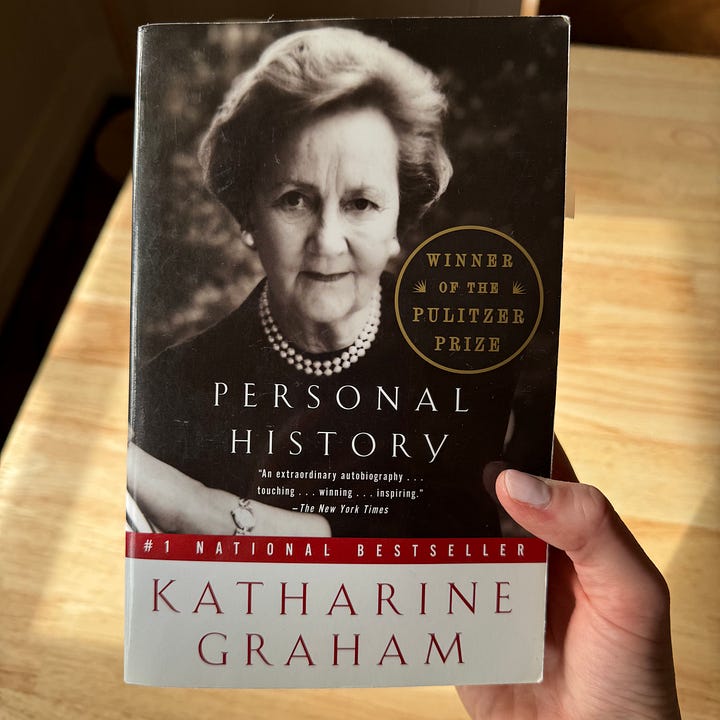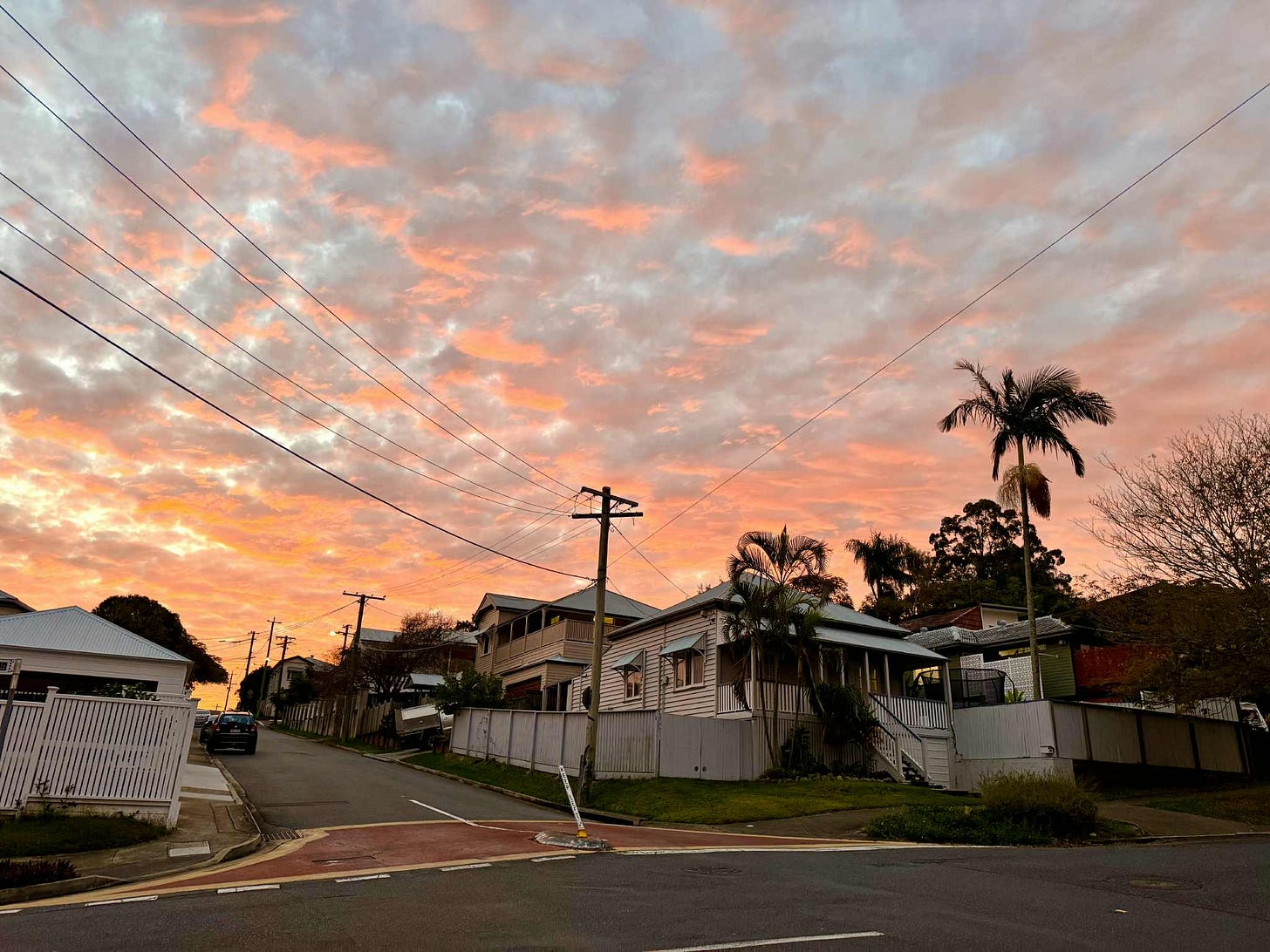TCC #71 — Climate vs. everything else
Climate activists act like climate change is the only problem that matters. They're wrong.
Hi folks,
It seems like climate policy news these days is either terrible (looking at you, ‘Merica) or conflicting (looking at you, Europe). Evidently, the US’s aggressive anti-climate activity is more ideological than anything, but in the rest of the world, we’re seeing more complicated tensions at play. I think it comes down to this: climate change is one problem among many. But for those of us working in the space, it often feels like the problem — the biggest one, the one everything else should orbit around.
Most people rarely think about climate change. And when they do, it tends to rank low on their list of concerns, thanks to a bias known as future discounting, where we downplay the importance of things that feel far off.
You can see this now playing out in the EU and the UK as proposed greenwashing legislation is rolled back under the guise of keeping the business world competitive. Whether this is the right move or the wrong one, it highlights the tension playing out in people’s minds: climate (long-term) vs. competitiveness (short-term).
When the economy is struggling (the real economy — not the one the journalists are talking about), people don’t care about a 1.5°C temperature rise. (Actually, no one ever cared about 1.5°C. What a terrible campaign.) When you can’t afford a house, you don’t care if it has solar panels. When your mental health is at its lowest, it’s hard to give a damn about trees.
Climate people tend to put climate change at the top of the agenda. But for policymakers — and business leaders — it’s just one of many competing priorities. And when something more immediate comes along, climate almost always drops to the bottom of the list.
I don’t know what we, as climate communicators, can reasonably do about this,but being aware of it is the first step. We need to acknowledge that climate change exists on a smorgasbord of global issues, so as not to sound totally naive when we talk about mitigation. When we ignore the other problems, we alienate the people suffering from them and turn them against our cause.
That’s it from me this week — enjoy your weekends, and hit me up if you’ve got good book recommendations. I’m in the mood for dystopian fiction. I wonder why.
This week’s briefing
❌ What’s bad
UK government follows in EU footsteps and walks back greenwashing rules
The UK Treasury has scrapped its plan for a Green Taxonomy, a framework meant to standardize corporate sustainability claims. The major argument here is that the framework wasn’t practical. That may be true, but what’s the alternative? Businesses are now left relying on voluntary measures and patchwork regulatory guidance to self-police their environmental claims. And we know how well that goes!
✅ What’s good
Guardian’s sales team is now Carbon-Literate
The Guardian has never been shy about calling things as they are. It helped popularise the phrase global heating, banned fossil fuel ads back in 2020, and now, true to form, it claims to be the first media company in the world with a fully Carbon Literate advertising sales team, meaning that every member of the team has completed training through the Carbon Literacy Project. (They announced this in April, but I’m slow on the update.)
It’s a natural move for The Guardian, but one that any company serious about its climate commitments should be looking at. Marketing and PR teams bear most of the responsbility for the today’s greenwashed advertising landscape. Carbon literacy training is a low-cost, high-impact way for companies to stop saying things they’ll have to walk back later.
What we’re curious about this week
📚 Book: Personal History, by Katharine Graham — I read this a few years ago and think about it all the time. I followed it up with a biography of Graham’s father, Eugene Meyer — an extraordinary figure in his own right. If you haven’t read Graham’s Pulitzer-Prize-winning memoir, I can’t recommend it enough. Graham is a humble but unwavering figure whose leadership at the Washington Post is sorely missed. To that end, it’s an important read today as the media landscape cowers and squirms under Trump. One thought I’m having: Is Laurene Powell Jobs (owner of The Atlantic) today’s Katharine Graham?


📖 Article: Ultra-Processed Minds: The End of Deep Reading and What It Costs Us — As a big fan of books, I’m terrified about what a post-book, post-literate future looks like. Some days, it feels like it’s already here. This incredible deep dive by Carl Hendrick laments the end of long, slow, deliberate reading. Some highlights: “Not all reading is created equal. Just as not all food nourishes, not all content feeds the mind… The immersive arc of narrative is giving way to the skimmable feed.”
🎙️ Podcast: The Economic Theory That Explains Why Americans Are So Mad — Ezra Klein interviews his wife, economics reporter Annie Lowrey, on the very confusing economy we live in — one that clearly had a huge sway on the last US federal election. It’s a year old now, but little has changed. TL;DR: while the big stuff becomes increasingly out of reach (houses, childcare, healthcare, etc.), we spend more on the little stuff (restaurants, air fryers, espresso machines) — because what the hell. The way we measure the health of the economy seems to have more to do with the little stuff and less to do with the big stuff, which is partly why things look good on paper, and we’re all still mad about it.
What we’re working on
👉 Corporate messaging refresh — As our brand messaging expert, Meg is heading up a new creative project: a corporate messaging refresh for a market leader in climate risk analytics. It’s a timely exercise, and there’s no one better for the job. In the meantime, I’m knee-deep in our clients’ web analytics, looking (as always), for buried treasure.
Ways we can help 🫶
🎯 Need help building an organic lead-generating machine? → See our lead gen services
📥 Want to know what’s trending in the world of sustainability reporting? → Download our free PDF: 2025 State of Sustainability Reporting
📣 Share this with your climate tech marketing team




Good point! What are your thoughts on combining issues in climate communication? For instance, environmental justice and affordable housing? As for your desire to read a dystopian novel: Try Eiren Caffall’s All the Water in the World. I read it in May and still think of it.